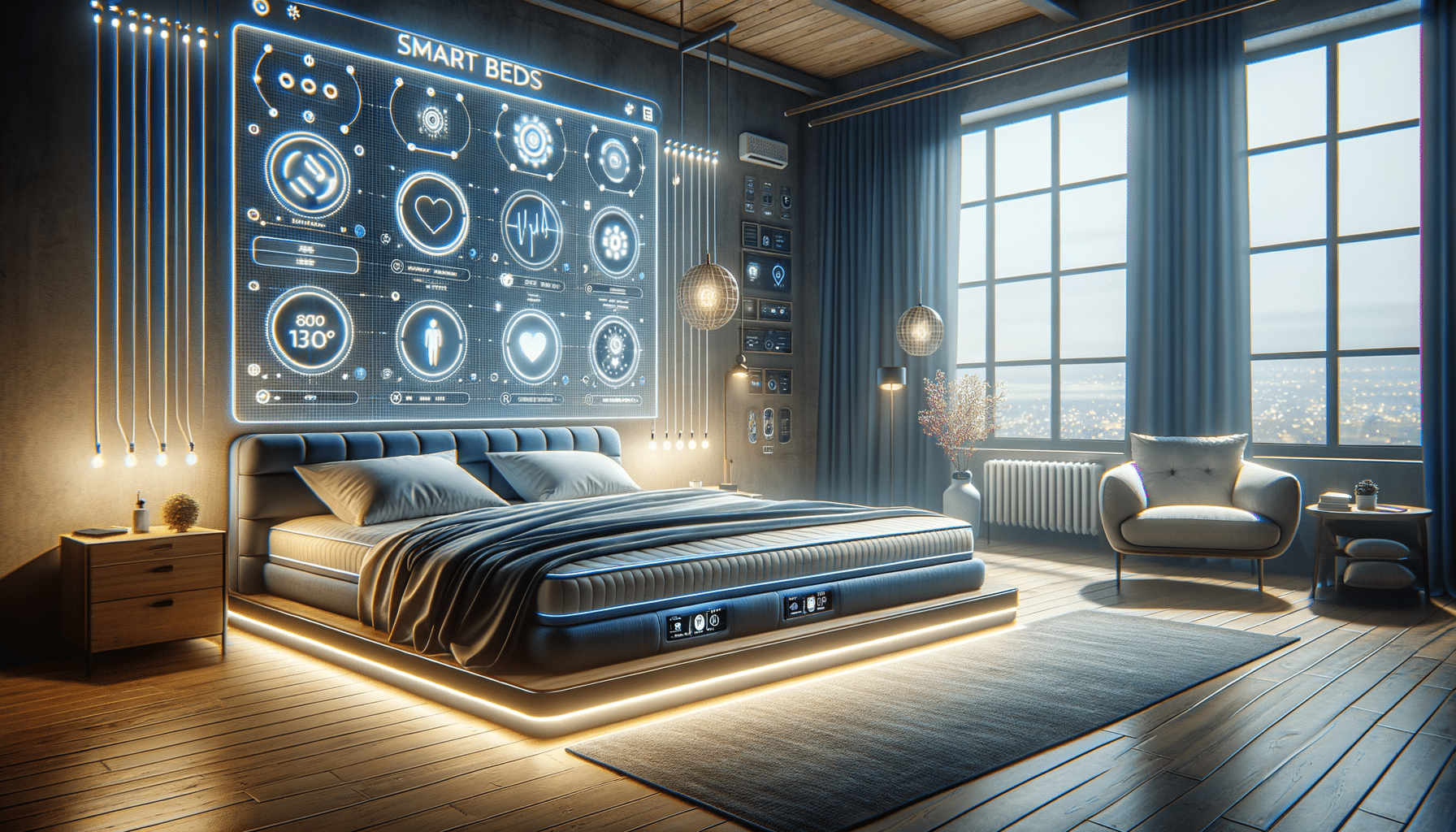
Exploring the World of Smart Beds: Innovation in Sleep Technology
Introduction to Smart Beds
In today’s fast-paced world, the pursuit of a good night’s sleep has led to a surge in innovative sleep solutions, with smart beds at the forefront. These technologically advanced beds are designed to offer more than just a place to rest. By integrating features like adjustable firmness, sleep tracking, and connectivity with smart home devices, smart beds aim to enhance the sleep experience in ways traditional beds cannot. As we explore the realm of smart beds, we will delve into their features, benefits, and the impact they have on sleep quality and overall well-being.
The Technology Behind Smart Beds
Smart beds are equipped with a variety of technologies that work together to create a personalized sleep environment. Sensors embedded in the mattress can monitor various metrics such as heart rate, breathing patterns, and movement. This data is then processed to provide insights into sleep quality and patterns. Some models even offer real-time adjustments to the bed’s firmness or position based on the user’s needs, ensuring optimal comfort throughout the night.
Connectivity is another key feature of smart beds. Many models can be integrated with smart home systems, allowing users to control the bed’s features through voice commands or mobile applications. This seamless integration not only enhances convenience but also allows for a more holistic approach to health monitoring by syncing with other smart devices.
Additionally, some smart beds come with climate control features, enabling users to adjust the temperature of the bed to suit their preferences. This can be particularly beneficial for those who struggle with temperature regulation during sleep, providing a more comfortable and restful experience.
Benefits of Using Smart Beds
The benefits of smart beds extend beyond mere comfort. By providing detailed insights into sleep patterns, these beds empower users to make informed decisions about their sleep health. For instance, individuals can identify disturbances in their sleep cycle and take corrective measures, such as adjusting their bedtime routine or seeking medical advice if necessary.
Smart beds also cater to couples with different sleep preferences. Features such as dual-zone firmness control allow each partner to customize their side of the bed, reducing disturbances and promoting better sleep for both individuals. This personalized approach can significantly improve sleep quality and, by extension, overall health and well-being.
Moreover, the integration of smart beds with other health-tracking devices creates a comprehensive health monitoring system. Users can track their sleep data alongside other health metrics, such as daily activity levels and calorie intake, providing a holistic view of their health and lifestyle.
Considerations When Choosing a Smart Bed
When considering the purchase of a smart bed, it is essential to evaluate several factors to ensure it meets your specific needs. The first consideration is the range of features offered. While some beds may focus solely on sleep tracking, others may include additional functionalities such as massage options or under-bed lighting. Determining which features align with your preferences and lifestyle is crucial.
Another important aspect is compatibility with existing smart home systems. Ensuring that the smart bed can seamlessly integrate with other devices in your home can enhance the overall user experience. Additionally, consider the ease of use of the bed’s control interface, whether through a mobile app or voice commands.
Lastly, it is important to consider the cost and warranty of the smart bed. While these beds can be a significant investment, the potential health benefits and improved sleep quality may justify the expense. Comparing warranties and customer reviews can also provide insights into the reliability and longevity of the product.
Future Trends in Smart Bed Technology
As technology continues to evolve, the future of smart beds looks promising with several exciting trends on the horizon. One area of development is the integration of artificial intelligence (AI) to further personalize the sleep experience. AI can analyze sleep data over time to predict and recommend adjustments that enhance sleep quality, making smart beds even more intuitive.
Another trend is the incorporation of biometric authentication. This technology could allow smart beds to recognize users and automatically adjust settings to their preferred configurations, adding an extra layer of personalization and convenience.
Moreover, advancements in materials science could lead to the development of more sustainable and eco-friendly smart bed options. As consumers become increasingly conscious of their environmental impact, the demand for sustainable products is likely to influence the design and production of future smart beds.
In conclusion, smart beds represent a significant leap forward in sleep technology, offering a range of features that cater to individual needs and preferences. As these technologies continue to advance, they hold the potential to transform the way we approach sleep and health, making them a compelling option for those seeking to enhance their sleep experience.


